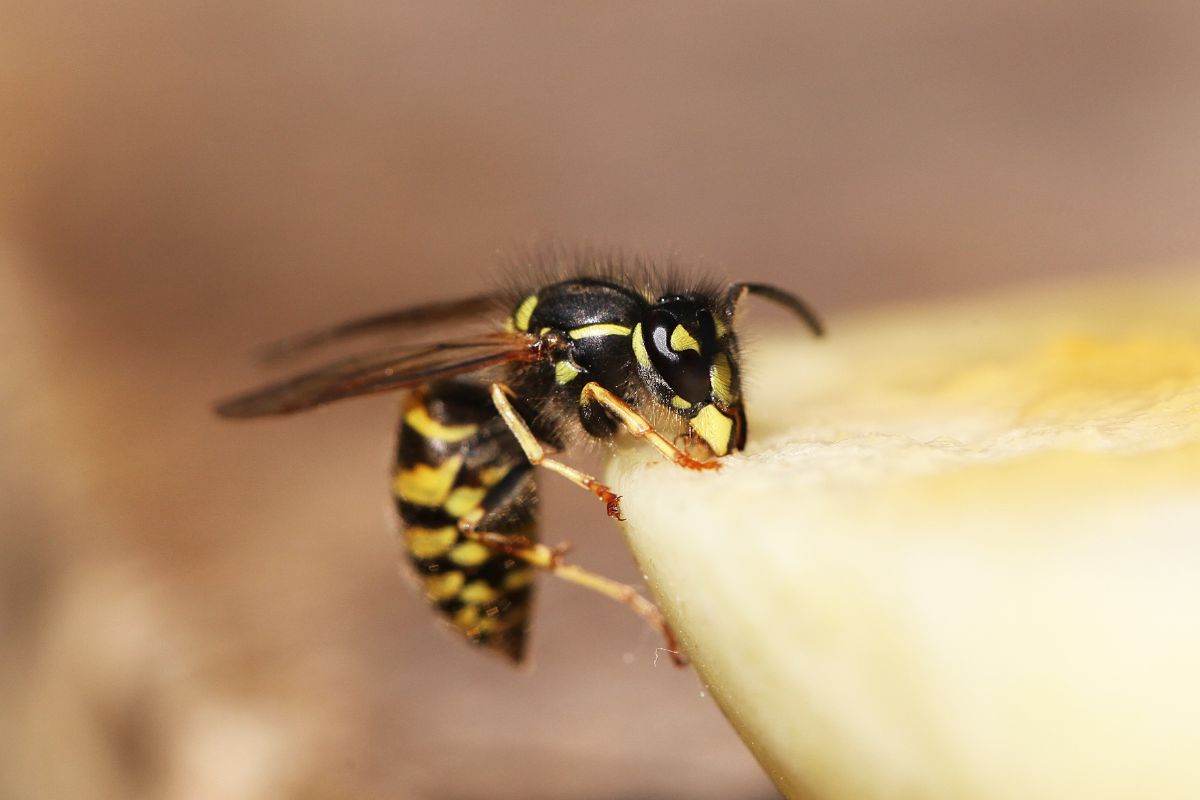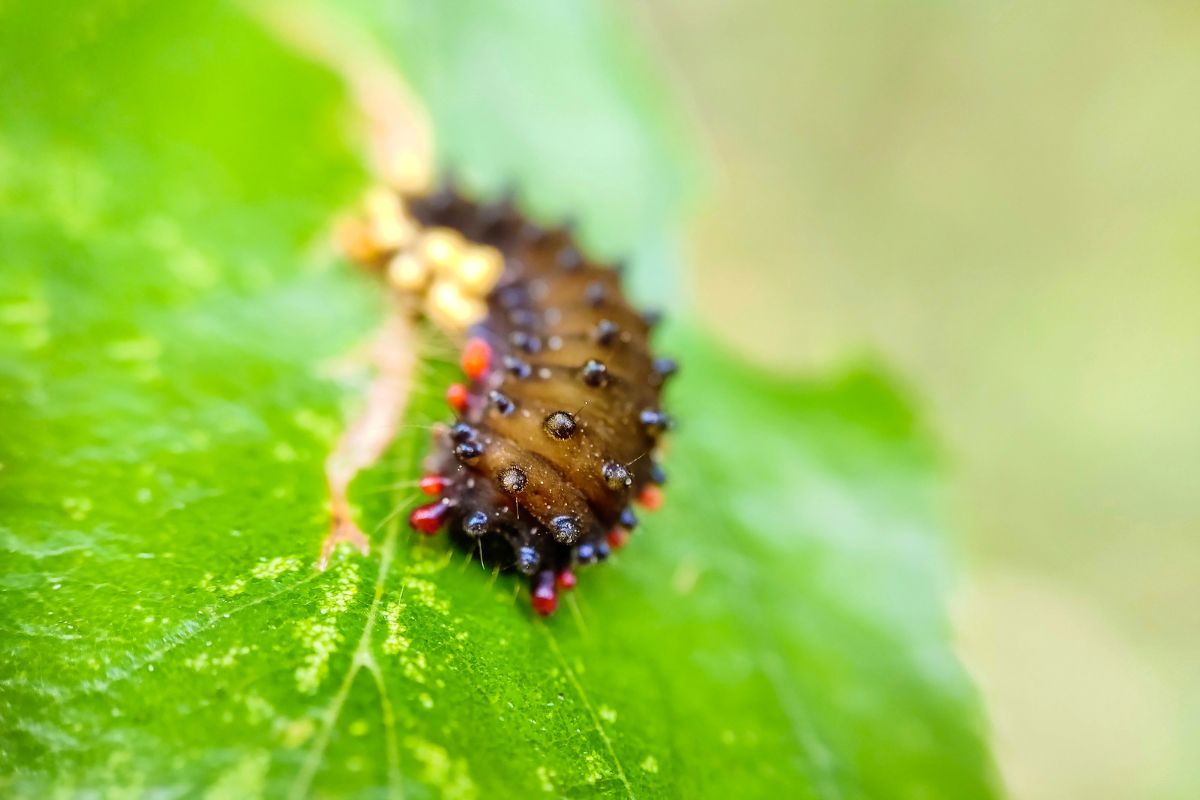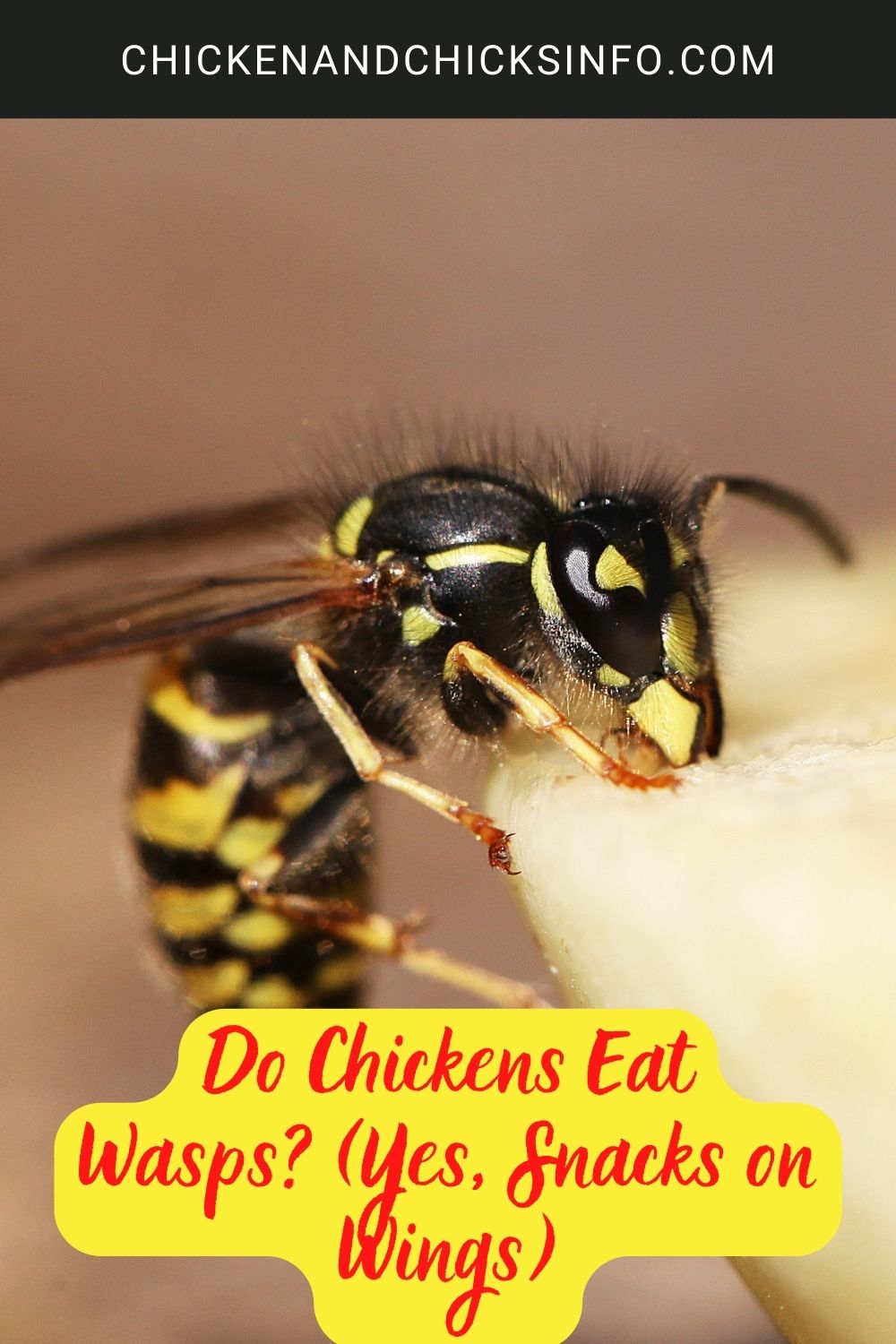
Chickens do eat wasps if they can catch them, yes. Like most insects, wasps provide a nutritional little snack for hens. Don't worry, the chance of being stung is minimal and they’re really not harmful in any way.
Jump to:
Is It Ok for Chickens To Eat Wasps?
It's perfectly fine for chickens to eat wasps, yellow jackets, hornets, and most ever flying pests.
Not only is it fine, but it is also perfectly normal behavior for chickens to eat bugs and insects and provides them with some great nutrition. It also
Free-range chickens are capable of getting a lot of their nutritional needs met land permitting. Although, with insects that are difficult to catch it’s often better to catch them for your flock as I’ll explain later.
Let's be honest, wasps are a nuisance to us at the best of times. This is one of those win-win scenarios. Your chickens get to have some fun and a snack, and you get your yard protected against pests.
Can Wasps Be Dangerous or Harmful To Chickens?

I don't know about you, you but I'm not particularly comfortable with wasps buzzing around me.
They do sting, and in fact, they can sting multiple times. It’s been a few years since I've been stung by one, but I'm not in any hurry to remind myself of how painful it is.
It’s just pain though. Wasps do not release any kind of poison or toxin (although some people do have allergic reactions). Plus, chickens aren’t as likely to be stung as they have a nice thick protective layer of feathers.
I have never heard of, or seen chickens being harmed or stung while eating paper wasps either. There’s really nothing to be concerned about.
Wasps are very defensive by nature too. When they’re buzzing around the picnic table or your lunch, they're really just after the food.
This is what makes catching them in traps so easy as I'll explain:
How To Trap Wasps for Your Chickens
It’s fun watching chickens trying to catch wasps, and they will get a few. There is a safer and much more convenient way, however - you can trap them for your hens.
This is also a good way to reduce the number of flying pests in your yard, especially overnight.
Obviously, it’s important you’re using pet-safe traps. This means no pesticides and chemicals that could potentially harm your chooks.
The best trap I’ve used for catching wasps, bees, yellow jackets, and other flyings pests is this outdoor wasp trap from Bee Coline available on Amazon:

All you have to do is hang it near their coop. During the day the solar panel charges the battery, which keeps a small LED light lit overnight to attract flying pests.
You add a little bait inside. Something sweet wasps can’t resist, like sugar water or honey, and it traps them inside.
In the morning, you have some little protein-rich snacks for your hens. This is particularly useful if you have some chicks in a brooder as it introduces them to eating insects.
Some of the Other Backyard Bugs That Chickens Can Eat

Bugs and insects are great for chickens and make up a huge part of their diet in the wild, or even for free-range chickens.
You only really need to be concerned about any pests that are known to be poisonous or harmful in your area.
Generally speaking, however, there are few dangers in the U.S. Here are some of the most common backyard bugs that make tasty treats for chickens:
- Caterpillars
- Spiders
- Beetles
- Snails and slugs (read about the risks slugs present here.)
- Grubs
- Ant
- Crickets and grasshoppers
- Ladybugs
- Silverfish
- ..the list goes on.
As you can see, if it has 6 legs or more, wings, or slithers around and dares to try and pass by your hens, there’s a good chance it’s going to get gobbled up!
It’s a win-win too. You have a flock of super-effective pest control units keeping the number of pests down in your yard, and your flock gets free food.
In Summary
Now you know, it's fine for chickens to eat wasps. There are really no dangers to them doing so and it means fewer wasps to annoy you, so it’s a good thing.
What I will say is, it's worth trying to identify that it is wasps you have in your yard. There are quite a few similar-looking yellow and black striped flying pests.
Most are fine for chickens, such as yellow jackets and hornets. I mention this because bees are not pests, despite looking similar (not that similar, they’re a lot bigger generally).
We should all do our part to protect the bees in this country. They are dwindling in numbers, yet provide a very important role in the ecosystem of the earth.





